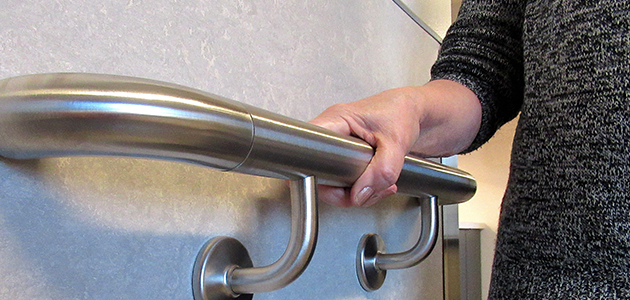
It’s an unfortunate fact that our balance deteriorates as we age. According to The Conversation,1 this process actually begins as young as age 25. But the problem is that as we continue to get older, we also lose physical strength and bone density, which means we can do more harm to ourselves when we can’t correct our balance and end up falling down. The reasons our balance worsens with age can include poor eyesight, joint swelling and poor flexibility, arthritis, vertigo, and even cognitive decline that makes it harder for your brain to actually process and correct slight imbalances.2
In short, it’s not your fault if you have trouble staying upright—but it is something you should be proactive about trying to manage to the best of your abilities.
Falls appear to be the leading cause of injuries that result in seniors being admitted to the hospital, according the Canadian Institute for Health information,3 and often the complications from falls end up limiting an older person’s independence and ability to remain in their home.
In order to reduce your risk of falling, you can take certain precautions:4
- Clear up clutter. If you have piles of stuff on the floor, sort it out and get it up on shelves or in drawers. If you have a lot of excess furniture that you have to walk around, consider getting rid of everything except that which is absolutely necessary.
- Keep the lights on. Make sure your halls and stairways are well lit so you can always see what’s in your path.
- Get proper traction. Wear shoes and boots with proper traction, especially in snowy and wet weather.
- Wear running shoes indoors. Stocking feet have a way of slipping out from under us on wood and tile floors, so consider a pair of clean, indoor running shoes.
- Lift your feet. Instead of shuffling, which makes you prone to tripping, lift your feet when you walk.
- Use handrails and install grab bars. Always use the handrails in public places, and consider adding one on both sides of your staircases at home for extra support. Install grab bars in showers and bathtubs.
You can also do exercises designed specifically to help you improve your balance. Since this is something we lose with age, exercises can help slow the progress and keep you stronger and more stable. As with any exercise regime, make sure to speak with your doctor before trying these exercises, particularly if you have any underlying health issues.
Balance exercises for seniors are simple to do and require nothing more than a pair of running shoes and, in some cases, a chair or wall for extra balance and support. The following websites have detailed descriptions of exercises that can help you improve your strength and balance:
SOURCES
1, 2 http://theconversation.com/explainer-why-does-our-balance-get-worse-as-we-grow-older-48197
3, 4 https://www.cbc.ca/news/health/falls-seniors-cihi-1.5208253
4179434E CAN/US 02/20


